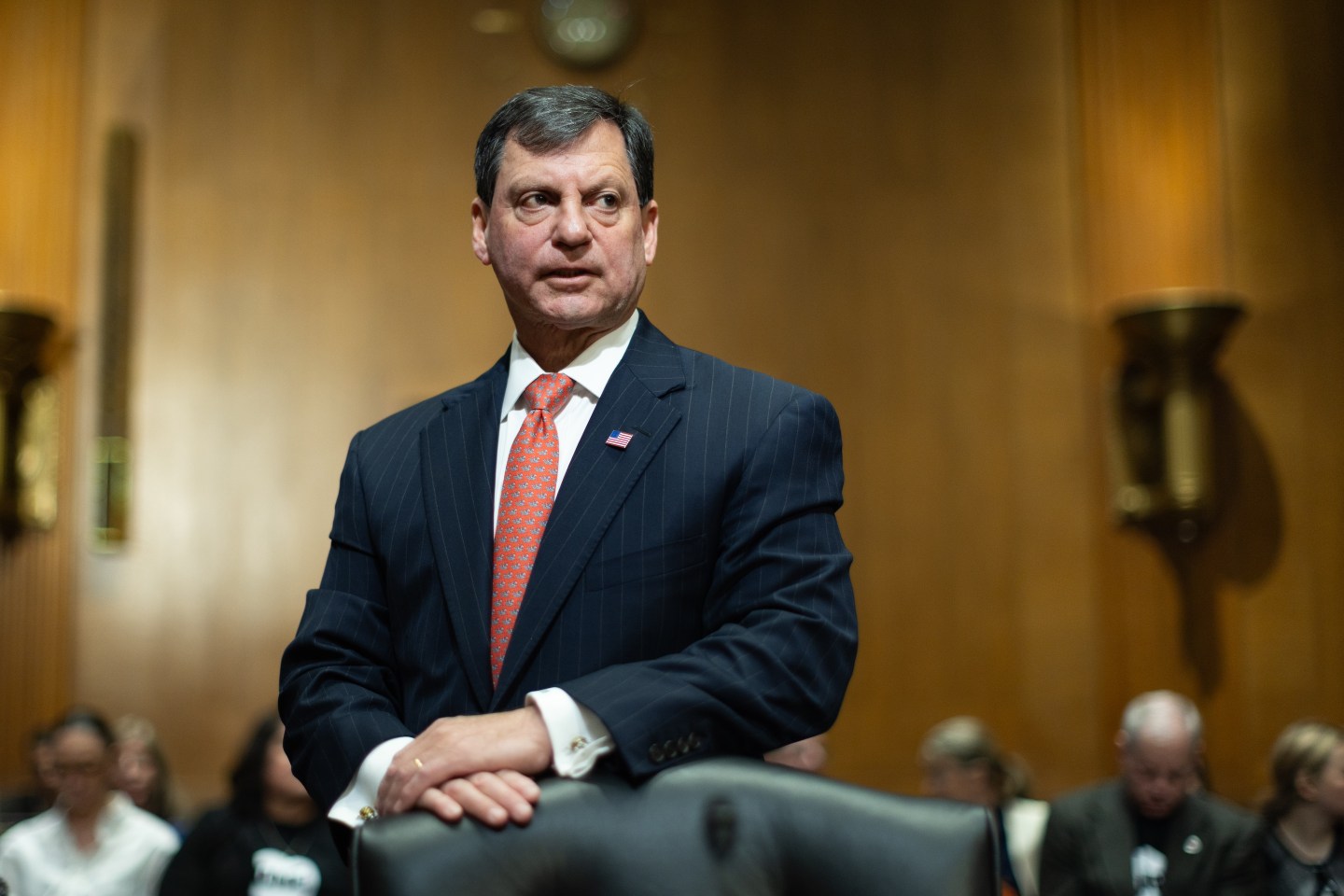Antitrust will be on the minds of many in the tech industry this week, what with Google’s big trial kicking off tomorrow. That case—about the deals Google cut with handset makers to have its search preinstalled as the default—will be a real blockbuster, testing new (for the U.S.) legal theories about what constitutes an antitrust violation these days. It’s even possible that the company will be broken up. But let’s not lose sight of the smaller changes that strong competition enforcement is already putting into effect.
For example, the WhatsApp-related news service, WABetaInfo, yesterday reported that the latest beta includes a new feature called “third-party chats” that appears to be a response to the EU’s new Digital Markets Act. Meta’s WhatsApp was indeed one of the 22 popular services that the European Commission last week designated as having “gatekeeper” status under the DMA—the law puts a bunch of proactive obligations on what gatekeepers can do, to squelch antitrust violations before they happen, and interoperability with rival services is one of those obligations.
As WABetaInfo points out, WhatsApp’s new third-party-chats section isn’t ready yet, but will clearly feature in a future version of the app. End-to-end encryption is of course a concern when introducing interoperability across platforms, but I’d expect WhatsApp-to-Signal chats to appear sooner rather than later, given the fact that WhatsApp and Meta’s Facebook Messenger have been using the Signal encryption protocol for many years now.
The DMA will also have other, very visible effects. Meta and Microsoft are both gearing up to take advantage of Apple and Google being forced, as of early March next year, to let people install third-party app stores. They will also have to let developers use third-party payment platforms.
For anyone steeped in the business models that have underpinned tech’s past couple decades, the notion of opening up walled gardens may seem heretical—but it’s becoming a reality nonetheless.
As with the rest of the world, it currently feels like the industry has entered a very uncertain and transformative period. That’s partly because of AI, which has the potential to blow up everything from search to entertainment, but it’s also because regulators and lawmakers have finally caught up with the Big Tech companies whose business practices have become the status quo. There’s no doubt that antitrust enforcement will play a huge role in shaping the tech sector’s incoming incarnation.
More news below.
Want to send thoughts or suggestions to Data Sheet? Drop a line here.
David Meyer
NEWSWORTHY
X, home for bots. Elon Musk may have planned to boot bots off Twitter, but Australian researchers say the problem is worse than ever, after analyzing X posts associated with the first Republican primary debate. “It is clear that X is not doing enough to moderate content and has no clear strategy for dealing with political disinformation,” Queensland University of Technology researcher Timothy Graham told the Guardian.
Alibaba shares slide. Alibaba’s share price fell by over 4% in Hong Kong today, owing to the sudden departure of Daniel Zhang as cloud chief. Zhang was group CEO until a couple of months ago when he decided to focus on Alibaba’s cloud efforts. As Reuters reports, his replacement, Eddie Wu, will now need to also manage the struggling unit—which is supposed to be spun out soon—for a while.
Instacart’s IPO valuation. Instacart, which was valued at a whopping $39 billion in a 2021 fundraising round, is now targeting a more modest valuation of $8.6 billion in its upcoming IPO. That's according to the Wall Street Journal, which notes that the online delivery app's upcoming listing on the Nasdaq exchange (under the ticker CART) will nonetheless be “a bellwether for the IPO market.”
SIGNIFICANT FIGURES
€113 million ($121 million)
—The amount Big Tech spends on lobbying EU lawmakers each year, according to new figures from the German organization LobbyControl and the Brussels-based Corporate Europe Observatory. Meta is apparently the highest spender.
IN CASE YOU MISSED IT
Elon Musk called Bill Gates ‘categorically insane’ and ‘an a*****e to the core’ after he shorted Tesla stock, by Eleanor Pringle
Elon Musk and Tesla poised to benefit from ‘highly likely’ UAW strike against Detroit’s Big 3—and the timing is just right, by Steve Mollman
SpaceX is barred from launching missions from its Texas base until it makes 63 changes after a recent rocket went haywire, by Bloomberg
AI tools fueled a 34% spike in Microsoft’s water consumption, and one city with its data centers is concerned about the effect on residential supply, by Associated Press
Arm is considering raising its IPO price because so many investors signed up to buy shares, by Bloomberg
Sam Bankman-Fried demands pretrial release from detention center, citing faulty internet, by Leo Schwartz
BEFORE YOU GO
A subscription too far. Roughly a year after BMW caused widespread outrage/mirth by starting to charge customers in some markets $18 a month to warm their posteriors, the German automaker has done a U-turn.
As Ars Technica notes, BMW has form on this front, having once tried to charge customers to let them use Apple CarPlay in their vehicles. Here’s BMW board member Pieter Nota, regarding the abandonment of the firm’s heated-seats subscription: “People feel that they paid double—which was actually not true, but perception is reality, I always say.”
This is the web version of Data Sheet, a daily newsletter on the business of tech. Sign up to get it delivered free to your inbox.












